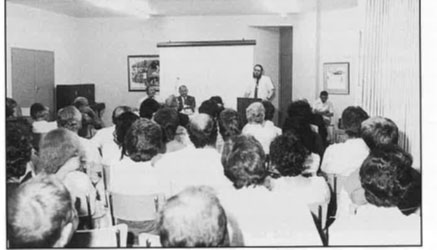South Africa’s physical isolation was increasing. The age of colonisation was over. One by one the White-ruled countries around her were gaining independence. In 1974 Portugal withdrew from her African possessions - Angola on the west and Mozambique on the east were independent. The recently gained independence of neighbouring states threatened South Africa’s ruling parties. Peaceful resistance and strikes had ended in bloodshed. The ANC, PAC and Communist parties now saw no other possibility of changing the country’s apartheid policies than through armed rebellion and the neighbouring states gave them support and safe bases. Anti-apartheid activists who had fled South Africa’s draconian policies, as Maria Tholo in Langa had predicted, were returning as terrorists.
Worried about a perceived Communist threat, compulsory military service for nine months became compulsory for all White men over the age of 16 in 1967, although deferment was allowed to complete schooling or a university degree. In 1972, this was increased to one year, as well as 19 days of service annually for five years and in 1977 it was increased again, this time to two years and 30 days annually for eight years.
South Africa was covertly backing civil wars and destabilisation in the front-line states of Angola, Rhodesia, Namibia and Mozambique - this became overt in Angola when Cuban troops arrived in 1976 and South Africa targeted the MK bases in Angola. However, they outgunned the South African army who had to retreat. The government tried to hide the ignominy with press censorship. To make things worse the UN Security Council agreed in 1976 that South Africa’s rule over Namibia was illegal. Smith’s White government in Rhodesia was also on its last lap and Mugabe would take over in 1980. The conscripts were used to fight against the liberation movements, anti-apartheid activists and the 'communist threat' but were now often deployed to townships to quell anti-apartheid action. When twelve South Africans were killed in Angola including a Jewish officer, the G&SPHC held a moment of silence as a mark of respect. (29.1988).
As the senior Jewish chaplain in the forces Rabbi Shrock conducted chaplaincy tours of the Army camps (1.11.1955). The committee approached the Jewish Board of Deputies to encourage national servicemen to come to shul (28.1.1987). The Board tried to arrange for Jewish servicemen to be posted to places where they could have access to kosher food and observe chagim, provided Jewish chaplains and interceded with complaints of antisemitism and the 1981 Rosh Hashanah bulletin published an article by Solm Yach, Chairman of the Board’s Chaplaincy Committee, on the Jewish servicemen to reassure the anxious parents. His father Aron had been shul president (1953-1954).
While we attend our houses of worship in our thousands,… our hearts go out to our valiant sons who, together with their fellows in arms, stand guard in the operational areas in order to enable the homeland to continue its peaceful life while they face the hazards and the dangers of the military situation. The contingencies of defence duties do not enable all of them to join us in prayer in the warm security of the parental homes as they have to answer the call of duty even during the festive season. What the civilian religious community is able to do for them under the present conditions is to extend to them the spiritual services of our young chaplains…They are with them in their units, organising services for them and bringing them the solace contained in the words of the same prayers that we utter in our synagogues. The SA Defence Force guarantees to our sons, subject to contingencies of service, the provision of spiritual care, pastoral guidance, studies, prayers, Kosher food wherever possible.

Rabbi Isidor Rubenstein, Chief Jewish Chaplain of SADF addresses prospective Jewish National Servicemen and their parents at a chaplaincy briefing, 20.1.1987. Photograph Bernard Sacks
Parents were not happy about their sons fighting an unjust war. Many left the country and others sent their sons to study – and remain - overseas. As a result, the G&SPHC lost valuable members.
